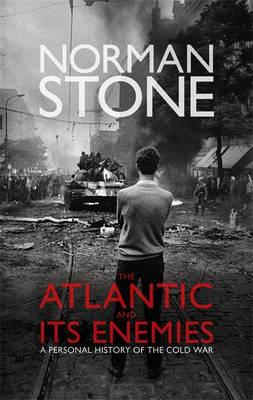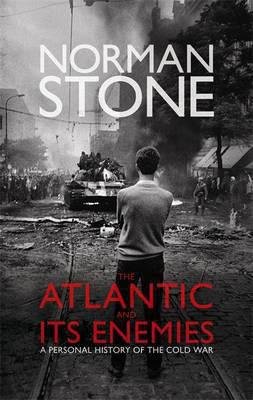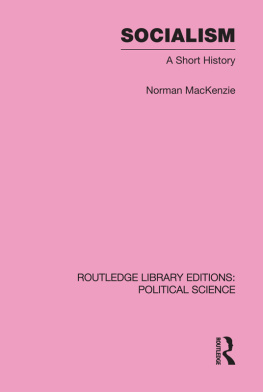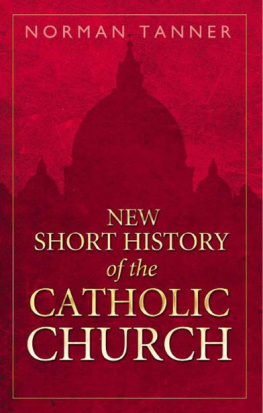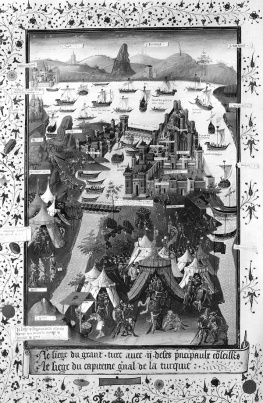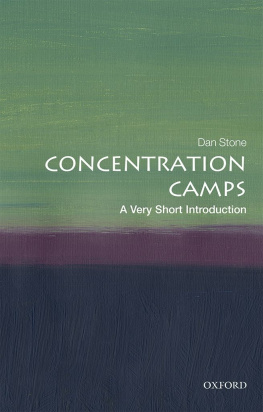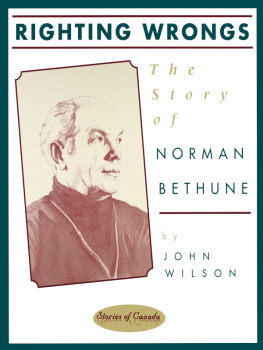Norman Stone - World War One: A Short History
Here you can read online Norman Stone - World War One: A Short History full text of the book (entire story) in english for free. Download pdf and epub, get meaning, cover and reviews about this ebook. year: 2008, publisher: Penguin Books Ltd, genre: History. Description of the work, (preface) as well as reviews are available. Best literature library LitArk.com created for fans of good reading and offers a wide selection of genres:
Romance novel
Science fiction
Adventure
Detective
Science
History
Home and family
Prose
Art
Politics
Computer
Non-fiction
Religion
Business
Children
Humor
Choose a favorite category and find really read worthwhile books. Enjoy immersion in the world of imagination, feel the emotions of the characters or learn something new for yourself, make an fascinating discovery.
- Book:World War One: A Short History
- Author:
- Publisher:Penguin Books Ltd
- Genre:
- Year:2008
- Rating:4 / 5
- Favourites:Add to favourites
- Your mark:
- 80
- 1
- 2
- 3
- 4
- 5
World War One: A Short History: summary, description and annotation
We offer to read an annotation, description, summary or preface (depends on what the author of the book "World War One: A Short History" wrote himself). If you haven't found the necessary information about the book — write in the comments, we will try to find it.
World War One: A Short History — read online for free the complete book (whole text) full work
Below is the text of the book, divided by pages. System saving the place of the last page read, allows you to conveniently read the book "World War One: A Short History" online for free, without having to search again every time where you left off. Put a bookmark, and you can go to the page where you finished reading at any time.
Font size:
Interval:
Bookmark:
preceding pages: Archduke Franz Ferdinand and Duchess Sophie lying in state
The first diplomatic treaty ever to be filmed was signed in the White Russian city of Brest-Litovsk in the early hours of 9 February 1918. The negotiations leading up to it had been surreal. On the one side, in the hall of a grand house that had once been a Russian officers club, sat the representatives of Germany and her allies Prince Leopold of Bavaria, son-in-law of the Austrian emperor, in field marshals uniform, Central European aristocrats, leaning back patronizingly in black tie, a Turkish Pasha, a Bulgarian colonel. On the other were representatives of a new state, soon to be called the Russian Socialist Federation of Soviet Republics some Jewish intellectuals, but various others, including a Madame Bitsenko who had recently been released from a Siberian prison for assassinating a governor-general, a delegate of the peasantry who had been picked up from the street in the Russian capital at the last minute as useful furniture (he, understandably, drank), and various Russians of the old order, an admiral and some staff officers, who had been brought along because they knew about the technicalities of ending a war and evacuating a front line (one was an expert in black humour, and kept a diary). There they are, all striking poses for the cameras. It was peace at last. The First World War had been proceeding for nearly four years, causing millions of casualties and destroying a European civilization that had, before war broke out in 1914, been the proudest creation of the world. The war had destroyed Tsarist Russia; the Bolsheviks had staged their revolutionary take-over in November 1917; they had promised peace; and now at Brest-Litovsk they got it at German dictation.
The terms of the treaty of Brest-Litovsk were quite clever. The Germans did not take much territory. What they did was to say that the peoples of western Russia and the Caucasus were now free to declare independence. The result was borders strikingly similar to those of today. The Baltic states (including Finland) came into shadowy existence, and so did the Caucasus states. The greatest such case, stretching from Central Europe almost to the Volga, was the Ukraine, with a population of 40 million and three quarters of the coal and iron of the Russian empire, and it was with her representatives (graduate students in shapeless suits, plus an opportunistic banker or two, who did not speak Ukrainian and who, as Flaubert remarked of the type, would have paid to be bought) that the Germans signed the filmed treaty on 9 February (the treaty with the Bolsheviks followed, on 3 March). With the Ukraine, Russia is a USA; without, she is a Canada mostly snow. These various Brest-Litovsk states would re-emerge when the Soviet Union collapsed. In 1918, they were German satellites a Duke of Urach becoming Grand Prince Mindaugas II of Lithuania, a Prince of Hesse being groomed for Finland. Nowadays, Germany has the most important role in them all, but there is a vast difference: back then, she was aiming at a world empire, but now, in alliance with the West, she offers no such aims quite the contrary: the difficulty is to get her to take her part confidently in world affairs. The common language is now English, and not the German that, in 1918, everyone had to speak as a matter of course. Modern Europe is Brest-Litovsk with a human face, though it took a Second World War and an Anglo-American occupation of Germany for us to get there.
There is much to be said for a German Europe. She had In 1914 the great smokestacks of the Ruhr or industrial Saxony predominated, as once those of Britain and Manchester had done. Certainly, as Churchill acknowledged, Germany produced a spectacular war effort, with victories such as the battle of Caporetto against the Italians in 1917, or the March offensive of 1918 against the British, displays of panache of which the plodders on the Allied side were utterly incapable.
The idea of a German Europe also made sense on the ground, and, again, there is a ghostly resemblance to the present. A European economic space, protected from British or American competition, including the ore of Sweden and France, the coal and steel industries of Germany, and with outrunners into North Africa and even Baghdad, where oil had already become important: why not? In 1915 one of the most enlightened Germans, Friedrich Naumann, wrote a bestseller called Mitteleuropa in which he called, not so much for a German empire, as for a sort of Germanic commonwealth, Berlin showing the way for the various smaller peoples to the south-east, of whom there were many. These peoples Poles the largest group had been swallowed up in the historic empires of Austria, Russia, Turkey; there were millions of Poles in Germany. Nationalist movements arose among most of them, and threatened the very existence of Austria and Turkey. Overall, seen from Berlin, these non-German peoples were being allowed to get away with too much. The Austrians spent so much money in a futile effort to buy off the nationalists that there was not enough left for the sinews of power the army especially, which had a smaller budget than the British army, one tenth its size. If Austria were properly managed, with a dose of Prussian efficiency, such problems would go away. In a Germanic Mitteleuropa, ran the thinking, these lesser peoples, whose culture anyway owed much to Germany, would come to heel. Since 1879 there had been an Austro-German alliance. Naumann meant to give it economic teeth. Other Germans had in mind a more forceful approach.
The confidence of these Germans grew as the countrys industry boomed, and success went to their heads. Bismarck had been cautious: he could see that a strong Germany, in the centre, might unite her neighbours against her. But a new generation was coming up, and it was full of itself. The symbolic figure at its head was a new young emperor, Kaiser Wilhelm II, who came to the throne in 1889. His model was England. She was vastly rich and had an enormous overseas empire. England was conservative as regards institutions, which had long historical roots, but she was also go-ahead, and her industries accounted for a large part of the worlds trade. Her overall position was guaranteed by an enormous navy. Why should not Germany acquire an overseas empire to match? Under Wilhelm II, German power and the blundering expression of it became a the European problem.
Already, on the Continent, there was rivalry with France, the outcome in the short term of Bismarcks great victory of 1871, By 1894, France and Russia were formally in alliance. Matters then became much more complicated when Germany bid for world power and constructed a great navy.
In 1900 the non-European world appeared to be disintegrating. India and Africa had passed into European control; China and Turkey looked increasingly likely to collapse, and Germans wished for their share. They then proceeded in quite the wrong way, and the generation that emerged into maturity around 1890 has much to answer for. The last thing that Germany needed was a problem with Great Britain, and the greatest mistake of the twentieth century was made when Germany built a navy designed to attack her. That cause somehow united what was best in Germany. Max Weber is one of the most respected sociologists, and his gifts were enormous: languages, law, history, philosophy, even the statistics of Polish peasants buying up Prussian land. In 1895 he gave a well-publicized inaugural lecture when he was appointed to a chair at Freiburg University. He was remarkably young for such a position not much more than thirty. The professor (who had resigned from the Pan-German League on the grounds that it was not nationalist enough) talked what now appears to be gibberish, making less sense than Hitler: England has no social problems because she is rich; she is rich because of empire; she exports undesirables Irish, proletarians, etc. because she has assorted Australias where they can be dumped; from these she can get cheap raw materials and a captured market; so she has cheap food, and there is no unemployment; England has her empire because she has a great navy. Germany also has undesirables Poles, proletarians, etc. therefore she too must dump the undesirables in colonies; a navy is therefore a good idea; England would accept a German imperial role if in a battle the German navy were large enough to do serious damage to the British navy before being itself sunk; that would mean that, come the next British naval battle, the British would not have enough ships and would therefore be sunk, by French or Russians. This was received with rapture by the audience. It is one of the stupidest documents ever put together by a clever man, and hardly worth even parodying. Every step in the argument was wrong, beginning with the assumption that the British had few social problems: these might even have been rather less without the sheer costs of empire. At the end of European imperialism, in the 1970s, the poorest country in the continent was Portugal, which ran a huge African empire, and the richest were Sweden, which abandoned its only colony in the Caribbean long before, and Switzerland, which never had an empire at all.
Next pageFont size:
Interval:
Bookmark:
Similar books «World War One: A Short History»
Look at similar books to World War One: A Short History. We have selected literature similar in name and meaning in the hope of providing readers with more options to find new, interesting, not yet read works.
Discussion, reviews of the book World War One: A Short History and just readers' own opinions. Leave your comments, write what you think about the work, its meaning or the main characters. Specify what exactly you liked and what you didn't like, and why you think so.


